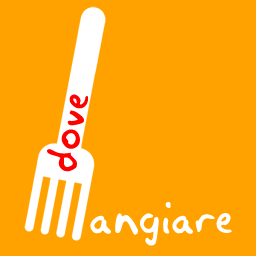
The Barossa Food story is a multi-faceted, continually evolving ode to seasonality and regionality. It tells of fruit ripened to perfection and vegetables bursting with real flavour. Of milk and cheese that taste of goodness and of poultry, pork and lamb that are fed well and nurtured with kindness. Of artisan food prepared with care and passion. And of time-honored recipes passed down through six generations.
It is a story that weaves tradition and innovation into an edible, timeless tapestry.
Inspired by the Barossa’s culinary pedigree, a fresh crop of talented and energetic food producers are on the scene with products as diverse as cheese, pastry, bread and olive oil. Now the Barossa shopping list has expanded further to include unpredictable offerings such as chocolate, coffee and tea.
This is the Barossa’s contemporary food culture, sustained by tradition and informed by modern artisans. Heritage meets innovation, and the reinterpretation of the Barossa’s culinary folklore sits easily alongside traditional methodology.
Here is a food culture that continues to thrive, one that resonates with the resilience of its people and, above all, offers a heartwarming welcome to all. This is a delicious story, one that fills the heart as well as the belly, giving comfort as well as contentment.
Food is an integral part of the community’s life, a weave of tightly held customs, shared traditions and exhilarating innovation.
The Barossa table overflows with astounding generosity, with rich earthy flavours, subtle seasonal delicacies and most of all, ample servings of friendship and lashings of joie de vivre.
Innovative and inspired yet steeped in history and tradition, Barossa Food comes straight from the heart.
The mouth-watering tapestry that is Barossa food weaves together old world culinary traditions with seasonality and Australian practicality. Sewn by many hands since its beginnings, it is a glorious abstract of colour bound by a framework of devotion and hard work.
Although the earliest land-owners were English with large holdings in the Barossa Ranges, it was German-speaking settlers, devout Lutherans, who had the strongest impact on the flavours of Barossa food. They arrived with only a few meagre possessions but they carried a wealth of culinary traditions in their baggage.
They were hard-working folk who cleared land for farming and built their homes in the old world style with wood ovens and smokehouses. They planted orchards, vegetable gardens and vineyards, grazed animals and felled trees to fuel their stoves. Every home had fruit trees, vines and a vegetable garden.
Driven by the need to preserve the bounty of the land and a stoic belief in the waste not, want not principle, they smoked meats and dried fruit, fermented and pickled vegetables, made cheese and fermented grapes to make wine.
They celebrated the turning of the seasons and gave thanks in the spired Lutheran churches that still dot the Barossa landscape.
Treasured family recipes, handed down from generation to generation, tell this story again and again and preserve a foundational food imperative - nothing is wasted at Barossa tables.
The Barossa townships were established early; butchers opened their doors and the aroma of their smokehouses full of ham, bacon and mettwurst drew customers. Bakeries offered traditional Streuselkuchen, honey biscuits and freshly baked bread and the culinary threads were deftly passed from farmhouse kitchens to village butchers and bakers. Inevitably supermarkets made their appearance but even they were, and still are, imbued with the Barossa’s traditional flavours.
The custom of socialising with family and friends at the dining table, on food grown, prepared and served at home in a generous spirit, is deeply rooted in the Barossa’s culture. Accordingly, it was no accident that the Barossa Cookery Book, thought to be the first regional cookbook in Australia, was chosen to raise funds for the war effort in 1917. It is still in print today. So deep-seated was the practice of home entertaining that the first restaurants in the region didn’t open their doors until the 1970’s.
The Tanunda Show, now over 100 years old, adopted a distinctly regional flavour, with competitions for the best dill cucumbers, pickled onions, Rote Grütze and Streuselkuchen taking pride of place in the show hall. The entry forms read like a rollcall of the early settlers – Andretzke, Lehmann, Gramp, Rothe – equally divided between men and women. With judges clad in white coats and a strict scoring system,
these were (and continue to be) fiercely contested categories
Food historian and Barossa resident Dr Angela Heuzenroeder, concerned that some of the region’s precious food traditions would be lost to future generations, spent a decade carefully researching old publications, interviewing farmers and poring over recipes with traditional home cooks. Her book, Barossa Food, was published in 1999 and immediately became a key reference for the region’s culinary traditions.
The same year, inspired by Angela’s research, the Barossa’s food producers came together to form Australia’s first authenticated regional food brand, Barossa Food. And the landscape became even richer with the emergence of a flourishing Barossa Farmers Market in 2002, still an essential weekly shopping experience.
The early settlers had no idea that their hard work and self-sustaining lifestyle would be the source of inspiration for generations to come. The history of Barossa food is a living, evolving story, reinterpreted each day on the region’s tables.
Want to learn more about the history of Barossa Food?
Barossa Food by Dr Angela Heuzenroeder, published by Wakefield Press, available at the Barossa Visitor Information Centre.
Barossa Cookery Book – Selected and Choice Recipes, available at Barossa newsagents

Lascia il tuo commento